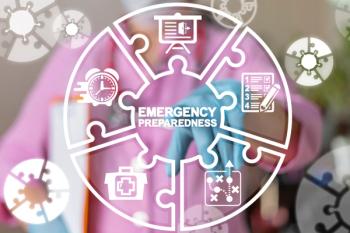
Let's explore the evolving role of fathers, societal shifts, and the impact of gaming on male identity and mental health.

Let's explore the evolving role of fathers, societal shifts, and the impact of gaming on male identity and mental health.

A psychiatrist thoughts for Father's Day.

Learn more about how to best assess and treat tardive dyskinesia.

Making redemption more explicit in psychiatry will increase the study of its possible influence and connections.

Now more than ever, capturing and scaling the ingredients that make for compelling and impactful teaching for trainees is vital to our future.

"The Inspiration Trap": the belief that a special talent or knowledge or divine gift—something outside of the artist—is necessary.

We're halfway through our 40th anniversary!

What do readers think of redemption in psychiatry?

US Senators have reintroduced The Access to Prescription Digital Therapeutics Act to increase access to prescription digital therapeutics and decrease barriers to care.

Diverse educational backgrounds bring complementary perspectives, strengths, and weaknesses that, when working together, can enhance the quality of care for patients and extend the reach of psychiatric services to underserved populations while maintaining quality and appropriate care.

The government has always played an important role in health care. Recent changes, however, are actively altering the practice of medicine and are posed to have a deep and lasting psychiatric impact on patients. Learn more here.

Mental health: it is time to do what is needed now or it will be more extensive and expensive later.

Daniel Morehead, MD, explores the resurgence of antipsychiatry sentiments and the importance of advocating for mental health amid rising skepticism.

Explore transformative memoirs and insights on estrangement in these 2 brief book reviews.

How can we apply the principles of redemption in psychiatry?

What role should performance enhancers and even AI play in psychiatry and human interactions?

Daniel Morehead, MD, critiques the discourse around antidepressants, urging a balanced view of their benefits and risks while addressing patient concerns.

Effective safety plans are an important measure for suicide prevention. Emphasizing early intervention and structured support can reduce risks and save lives.

Euthanasia risks becoming a symptom of burnout.

Taking a page from the Olympics, psychiatry needs to work faster, higher, and stronger--together.

Although medical ethics prioritizes the patient, should the clinician get more equal consideration?

Cultivating hope in therapy enhances resilience and empowers patients to overcome mental health challenges and achieve their goals.

Championing diverse voices: check out our June theme! We want to hear about your insights, tips, and case studies.

Discover key insights from the APA Annual Meeting, highlighting advancements in lifestyle psychiatry, ADHD treatment, and innovative suicide prevention models.

Check out the pipeline updates from May!

Psychiatric professionals express concern over the impact of federal changes on diversity, equity, and inclusion programs in mental health care.

Recent research reveals dopamine partial agonists significantly reduce somnolence in major depressive disorder and schizophrenia compared with D2 receptor antagonists.

In this CME article, learn more about the essential role of MAOIs in treating resistant depression and anxiety.

Cariprazine shows promise as a long-term adjunctive treatment for anhedonia in major depressive disorder, according to new poster data presented at the ASCP Annual Meeting.

Neurocrine Biosciences reveals promising phase 2 results for NBI-1117568, a novel treatment for schizophrenia, showing significant symptom improvement over placebo.